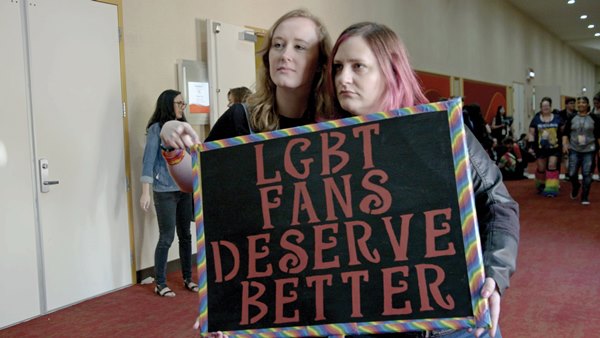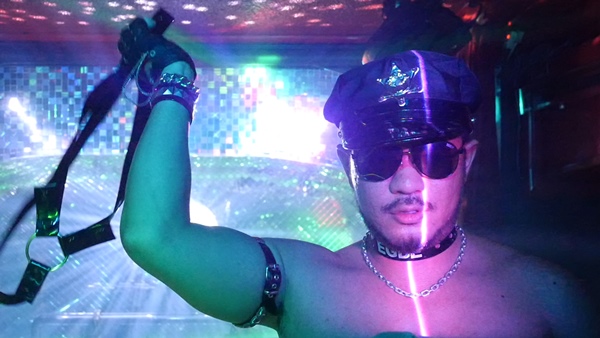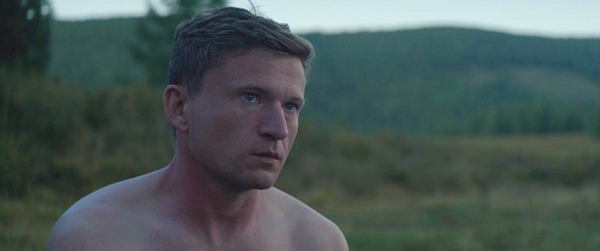
Screening more than 160 works from 30 countries, the 31st annual NewFest, New York City’s LGBTQ+ film festival, highlights new voices in cinema and a wide range of genres and experiences, which you can’t find on any streaming service, at least not yet. Here are a few movies that will be playing this weekend.
QUEERING THE SCRIPT
This documentary examines the queer fangirl side of nerd culture. Through interviews with fans, creators, and even stars (Xena herself, Lucy Lawless!), Gabrielle Zilkha’s cheerful documentary takes us through the evolution of female queer fandom while showcasing where they all congregate: ClexaCon, an annual sci-fi convention held in Las Vegas.
Zilkha goes way back to the heyday of queer fandom: slash fiction, which began in the 1970s when fans wrote stories and comics about the Star Trek characters Captain Kirk and Spock learning to cling on to each other, if you catch my drift. These Kirk/Spock stories came from perhaps the most unlikeliest of authors: straight women.
We’re told those who wrote these stories felt empowered to write sex between two male characters, as writing about feminine sexuality was still taboo. Then we jump forward to the ‘90s, when sci-fi television began to tip its hat to its slash fiction audience by heavily implying homoeroticism between its characters, but without fully establishing them as queer. The big shining example of this was TV’s Xena: Warrior Princess and the relationship between its female leads, Xena and Gabriella. Of course, Lawless is featured here to tell us that, heck yeah, they knew what they were doing and leaned heavily into the lesbian eroticism.
From there the film goes into tropes which have emerged now that characters on TV can be openly LGBTQ. The biggest tropes are known as “bury your gays” and “queer-baiting“—both of which are perpetuated by straight writers/showrunners who don’t quite know how to write queer story lines, which is all the more reason for there to be more LGBTQ people in writers rooms. Prospective screenwriters or fans of sci-fi will want to check out Queering the Script.

QUEER JAPAN
Graham Kolbeins’s Queer Japan may be the most visually dazzling entry in this year’s New Fest. Don’t be surprised if you see it playing on monitors in gay nightclubs. Canadian-born director-cinematographer Kolbeins takes the viewer on a journey exposing everything queer in Japan, and I legit mean everything. He starts with a butohdancer and, among many destinations, goes on to the pioneer lesbian nightclub owner in the gay quarter of Tokyo, Ni-Chome, to Department H. The last is the showstopper. Department H (which stands for hentai) is like the drag ballroom scene in New York, except this includes furries, puppies, and some very outlandish set pieces, like a giant rubber pig that gives birth to a litter of people wearing piglet costumes.
After all the dazzle and hoopla of the Tokyo nightlife, Kolbeins rounds it out by introducing the activists working on the ground: Japan’s first trans politician, a lawyer fighting for sex workers rights, the head of a center for deaf LGBTQ persons, and community safe sex advocates delivering pamphlets and condoms to queer venues. (AIDS didn’t become an epidemic in Japan until the late 1990s; the crisis is still in its early stages over there, and so there is urgency in getting the word out about safe sex practices.)
Queer Japan is like a living travelogue with an on-screen glossary; key terms pertaining to the film’s subjects are presented alongside their English equivalents (a single word in Japanese can be like a mash-up of several words in English). The segments run anywhere from two to 10 minutes, so you will not want to look away from the screen for very long, but this also means Kolbeins’s documentary sweeps you up in what looks like a thriving community of a really rad LGBTQ community in an otherwise unaccepting country. Kolbeins, for your next film, can you just do a queer remake of Lost in Translation?

SIBERIA & HIM
Trigger warning: this film opens with a main character trying to hang himself. Even though he is unsuccessful, the rest of the story doesn’t pan out so great for him. Sasha (played by its director, Viatcheslav Kopturevskiy) lives in a remote part of Siberia that is terribly impoverished. Work and money are scarce, and so too, it would seem, is happiness. You see, Sasha is gay living in the homophobic hinderlands. Add to that his very dangerous secret: he has been having an affair with his sister’s husband, Dima (Ilya Shubochkin), who is a high ranking member of the local police.
Dima has tried breaking off the affair several times but to no avail as he can’t seem to keep his hands off Sasha after he’s had a few shots of vodka. As misfortune would have it, the two are tasked by Sasha’s mother to leave town to check on Sasha’s grandmother, who has mysteriously stopped answering her telephone. The village she lives in can only be reached by foot, so the two set off on a journey during which they are forced to confront the truth about their relationship.
Kopturevskiy’s film contains long stretches of silence and wide, real-time shots of the two men voyaging across the empty outback of Siberia. There are stops along the way in which Kopturevskiy employs impressionistic montages to express what each character feels and their apartness from each other. The film is filled with dreariness throughout, making Siberia & Him no easy journey. Little to no hope exists, but the desolation of the setting creates a sense of sympathy for all of the characters.

STRAIGHT UP
Writer-director James Sweeney stars as Todd, a neurotic Asian American man living in Los Angeles who has decided he may not be gay, despite the fact that he’s been out for a number of years. In a random encounter (the anti-meet-cute?), he meets his match in the acerbically tongued, jaded starving actress Rory (Katie Findlay from TV’s Man Seeking Woman).
The two embark on a housesitting job together and talk endlessly, comparing all their hot takes on everything and unloading all their personal foibles (spouting off such Woody Allen–esque self-deprecations as, “I lie to homeless people. I always have change; I just don’t give it to them.”) and after this endless vetting period, Todd and Rory attempt to become a perfectly normal heterosexual couple. Their announcement has varied reactions from Todd’s friends and family, all of whom had resolved a long time ago that Todd was gay.
Straight Up is a comedic commentary on the privileges afforded to straight people, especially when they are coupled up. Both leads work well within their awkward wheelhouses. Findlay especially shines as Rory, who continually bombs her acting classes and auditions.
ALL WE’VE GOT
You know those feminist bookstore sketches from Portlandia? Well, the actual bookstores those are based on are closing, and so are many spaces that cater to female members of the LGBTQ community. Director Alexis Clements explores why this is happening while visiting several locations that are still standing.
Segments take us to spaces like Alibi’s bar in Oklahoma City, the Lesbian Herstory Archives in Brooklyn, the Esperanza Peace & Justice Center in San Antonio, and the WOW Cafe Theatre in New York City. The documentary acts partly as a time capsule to when these spaces were so crucial to forming communities, to showcase where these spaces still exist, and to explain why lesbian spaces are disappearing. In short, since more mainstream venues are becoming safe spaces for the LGBTQ community, this means there is less need for LGBTQ-specific venues.
However, at a running time of about an hour, All We’ve Got isn’t going to provide much new information for anyone already aware of this trend.
















Leave A Comment